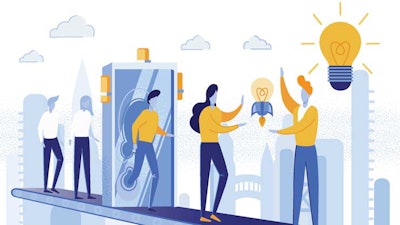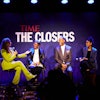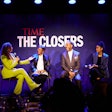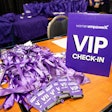
As the country starts to open up, we need to look beyond just getting back to the office and evaluate what the future of live gatherings in all forms will be, including conferences and special events.
This is our chance to return events to their core. Eliminate the distractions and unnecessary add-ons to cover that we’ve thrown onto events “just because” and return the focus to the attendee, the mission and the vision.
This is more than just asking for buffets to have sneeze guards. For some time, I’ve witnessed a declining interest in attending an event that sets up attendees for bad behavior:
- Over-indulging on food and drink
- Awkward interactions that create scenarios for inappropriate or unwanted attention
- Intentional and unintentional harassment
- Exclusivity and promotion of a single group vs. inclusivity, diversity and promotion of all individuals.
And the list goes on.
Attendees are overburdened with demands of their time. We then ask them to leave behind their families, work and personal needs to attend an event that often doesn’t provide them with anything more than a few nights in a hotel and a desire for a juice cleanse.
What if instead, we saw high-quality education; opportunities for legitimate networking designed to solve attendee pain points and a focus on wellness and self-care at our events?
When guests are able to think critically and clearly, instead of being in a sleep-deprived, hangover-induced fog (or worse, skipping those sessions all together), imagine how industries and organizations might be able to better themselves.
The Next Step
In this greater rethinking/repositioning, we have to develop strong content. To say that we can recreate the live experience with Zoom is like trying to drink from a fire hose.
Even social virtual gatherings have lost their luster because it’s now part of everyone’s daily life, not just the advanced with technological literacy.
The novelty of video technology has worn off and we see it for what it is: a group of people standing awkwardly in a circle reporting out.
Therefore, my challenge to you is this:
1. Fix this online fatigue with strong educational content that benefits the viewer with actionable takeaways or other implementable ideas that can actually solve a problem for your audience.
2. Make sure your presenters are dynamic and feel confident in a direct-to-camera method with delayed participant feedback.
3. Keep your topics timely and relevant for smaller subgroups.
4. Don’t expect the online event to be just like the in-person event the same way you cannot expect a book and its movie adaptation to be spot on. They are different mediums. Treat them as so and we’ll all win.



















